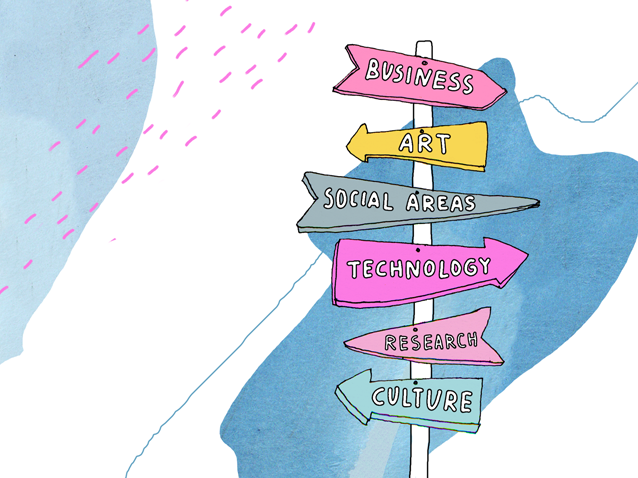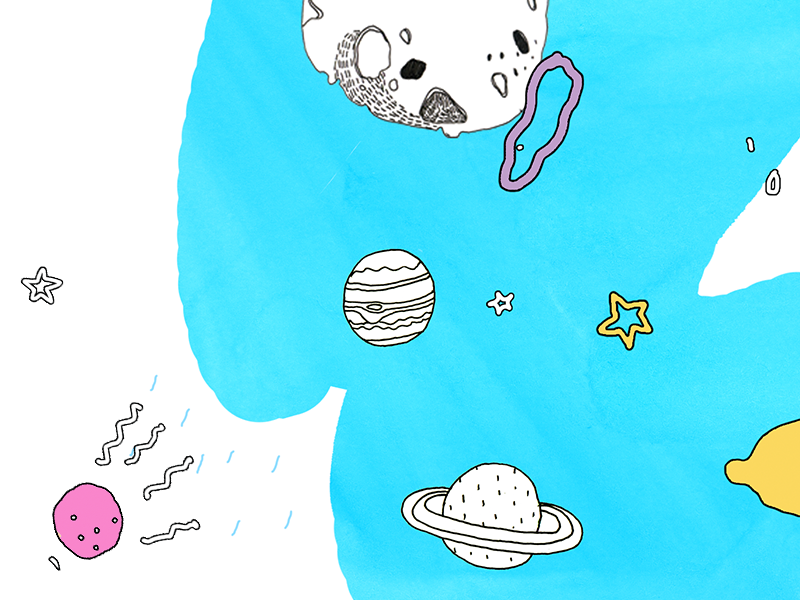
Monica Babuc: "Culture is not only begging for money from the State budget"
About “Culture 2020” Culture Development Strategy
Given the current situation in this field, the authorities should put in place both a regulatory framework and a national financial support program for culture and creativity. The Ministry of Culture developed and approved in early 2014 the “Culture 2020” Culture Development Strategy - the first document that sets priorities for a long-term development of this sector.
Increasing the economic weight of the cultural and creative industries is one of the four objectives of this Strategy. It also envisages a Cultural Businesses Funding Programme, intended for persons who want to set up and develop a business in the cultural industries. This measure aims at promoting innovative start-ups in cultural industries and facilitating the SMEs development. And, of course, a closer communication between the Ministry of Culture and cultural players is inevitable, as they will be consulted when drafting public policy documents.
Participation in EU Programs for cultural and creative sectors and full involvement of all stakeholders to improve the quality of cultural product offered to people are also required. This partnership will reinforce the sustainable development of culture in our country.

Expectations from the EU-Eastern Partnership Culture and Creativity Programme
Given the poor skills of the culture professionals, an institutional framework should be set up for their education and professional development. With this in mind, we are working now on the establishment of an institutional structure that will provide professional development, particularly in such areas as cultural management or marketing and project management. We believe that the EU-Eastern Partnership Programme could help develop and implement a series of trainings modules, as well as provide opportunities to share the best European practices.
It is necessary to conduct both quantitative and qualitative surveys in culture. No representative survey on consumption of culture or cultural market has been conducted in Moldova so far. Such a survey would be necessary for policy drafting and would provide solutions for a more efficient cultural management in various areas.
Public institutions need to be reformed and performance management needs to be promoted in cultural institutions. For this objective to be attained, a research on the current situation of public cultural institutions is required. The lack of an efficient cultural institution management mechanism burdens the State budget and minimizes their possibility to provide quality cultural services.
We also rely on the support provided for building the capacities of the staff of the Creative Europe Desk Moldova.
We believe that all these priorities/needs can be addressed by sharing experiences and best practices, and by strengthening the joint efforts of all Partnership countries, with the support of the European Union, so that the Moldovan culture becomes competitive, able to stir up the interest of both the wider public and authorities.
The Programme certainly represents a communication platform for the regional cultural players. The Programme offers opportunities for dialogue among professionals, followers of different trends and movements from different countries, and for cultural networking. The Programme also aims at changing the perception of creative industries.
We hope that the Programme will help enhance the economic growth in the sector by developing the cultural and creative industries. The Programme will also intensify the development, training and use of the heritage, in line with cogent realities, and will encourage the connection of cultures from the Eastern Partnership countries, of cultural leaders and organizations to the “European Cultural Space”.

Culture and its role in the society
One may create ever so advanced new techniques and technologies, one may be remarkably successful in business and develop new techniques and technologies to earn money, but if no attention is given spirit and culture, an entire nation may end up without identity since culture is a nation’s hallmark. Culture is the only product that – once assimilated – grows and proliferates. Culture is not only begging for money from the State budget. It can and must support itself and even generate revenue for the budget, while preserving the capacity of culture to deliver spiritual and social products.
The material, of course, prevails, because bread on people’s tables and warmth in people’s homes matter very much. However, warmth in people’s souls can be maintained only if proper conditions are in place. Now for you to understand me right, I do not want to appear idealistic, as I know that people get very upset when we talk about spirituality without admitting that we do have problems in this regard. I am, however, positive that spirituality is earning a bigger and bigger part of our lives.
Successful projects from Moldova that deserve to be known by others
Novateca national programme on the renovation of public libraries in Moldova is one of the successful projects. It aims at upgrading and equipping the libraries and librarians with the view to modernize and enhance their work. Libraries are cultural, educational and social centres that provide extremely necessary services for the population. Over the past three years, with the support of Novateca Program, funded by Bill & Melinda Gates Foundation in cooperation with USAID, the public libraries from Moldova have turned into throbbing community centres that provide free Internet access and a wide variety of new services, aligned to the community needs. Thus, libraries have started to provide services in culture, health, social protection, international environment, youth development, education etc., with a major impact on communities.
Another successful project launched by the Ministry of Culture was about promoting our national costume. The most recent events organized by the Ministry of Culture, such as “Festivalul Iei” (Festival of the National Women’s Blouse), Parade of National Costumes, Parade of National Winter Costumes, but also the initiatives of the civil society, mass-media and public institutions to wear traditional costumes on the occasion of national holidays have had a major impact on the society. As a result, the rehabilitation of the national costume reached its peak point when it was honoured at the national celebrations organized on the occasion of the Independence Day of the Republic of Moldova from 2013 to 2015. Recently, at the initiative of the Ministry of Culture, the Parliament of the Republic of Moldova approved a decision that nominated every fourth Sunday of June as the National Costume Day, which has the purpose to promote the real values of the spiritual cultural heritage, featured by the traditional costume.
“Culture 2020” Culture Development Strategy sets protection and use of the country’s cultural heritage as one of its main objectives, which must become part of the country’s general sustainable development policies. Soroca Fortres, Manuc Bei Estate and Manor House and other important Moldovan landmarks were rehabilitated.
The international festivals organized in Moldova, such as “Martisor” International Music Festival, “Maria Biesu Invites” International Festival of Opera and Ballet, “Cronograf” Documentary Film Festival, “Eugene Ionesco Theatre’s Biennial” International Performing Arts Festival are events that bring together talented people from different world countries and have already become a hallmark of our country.




